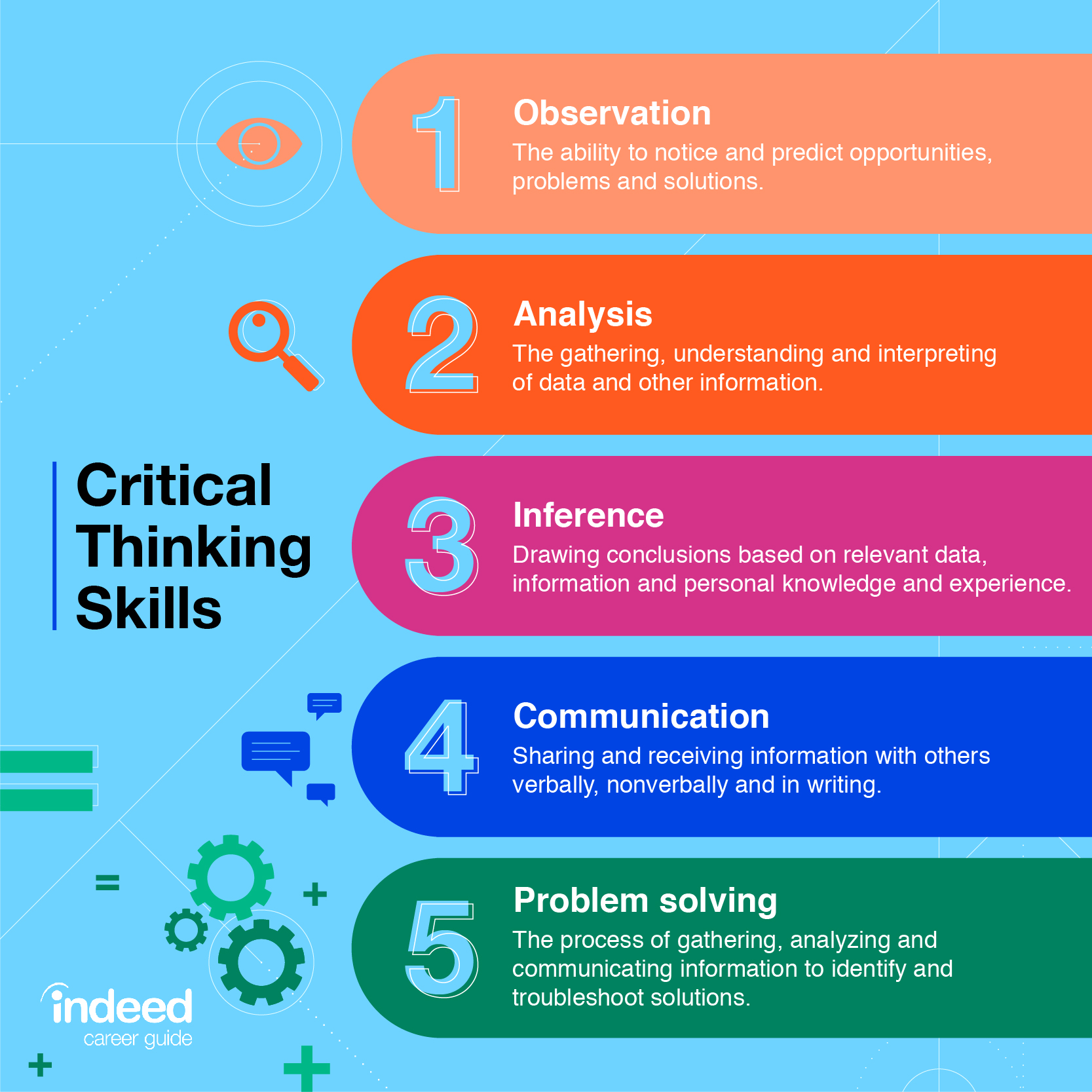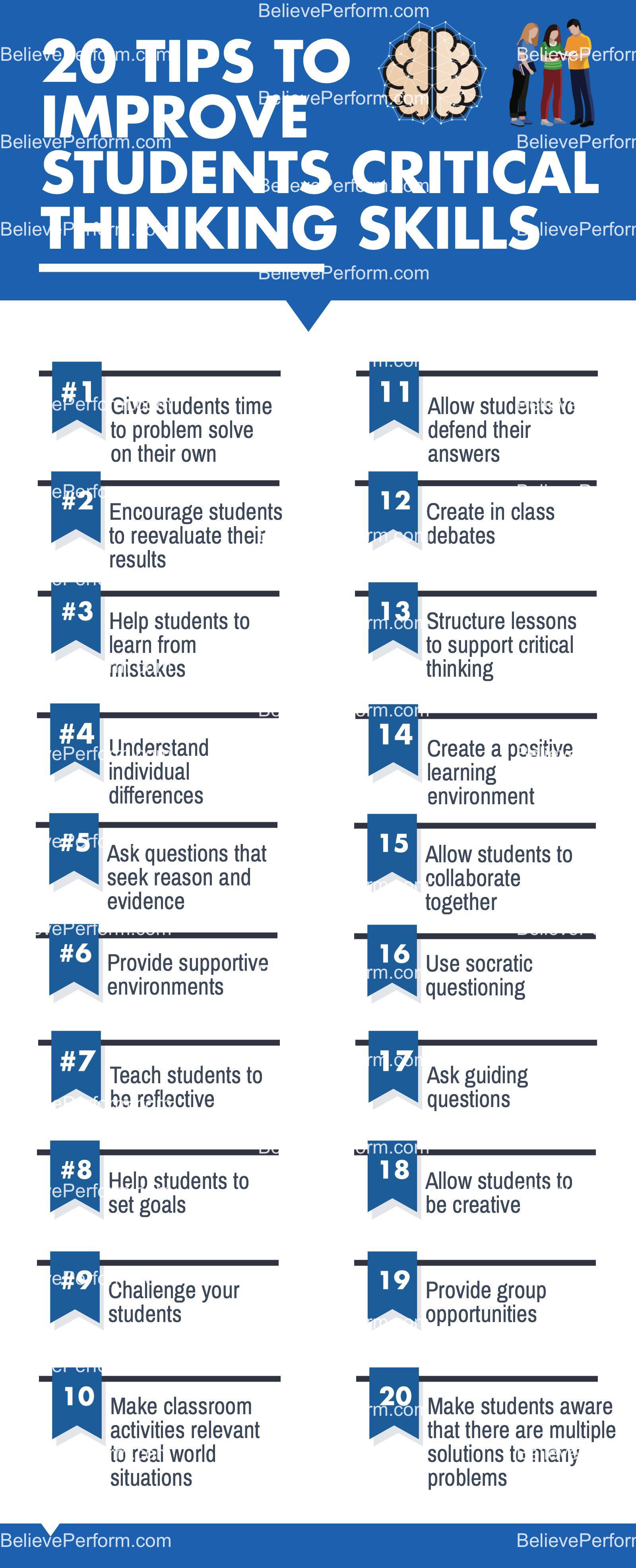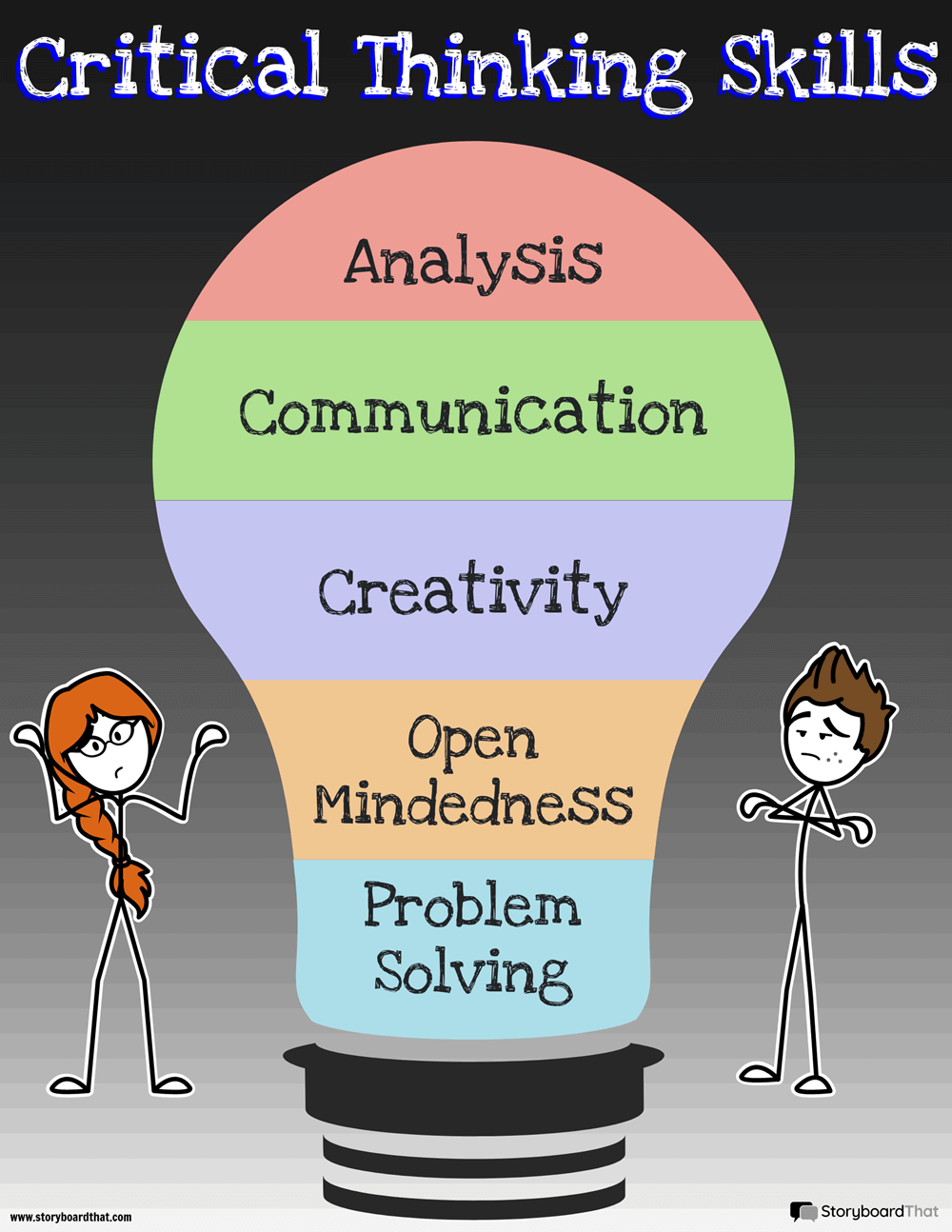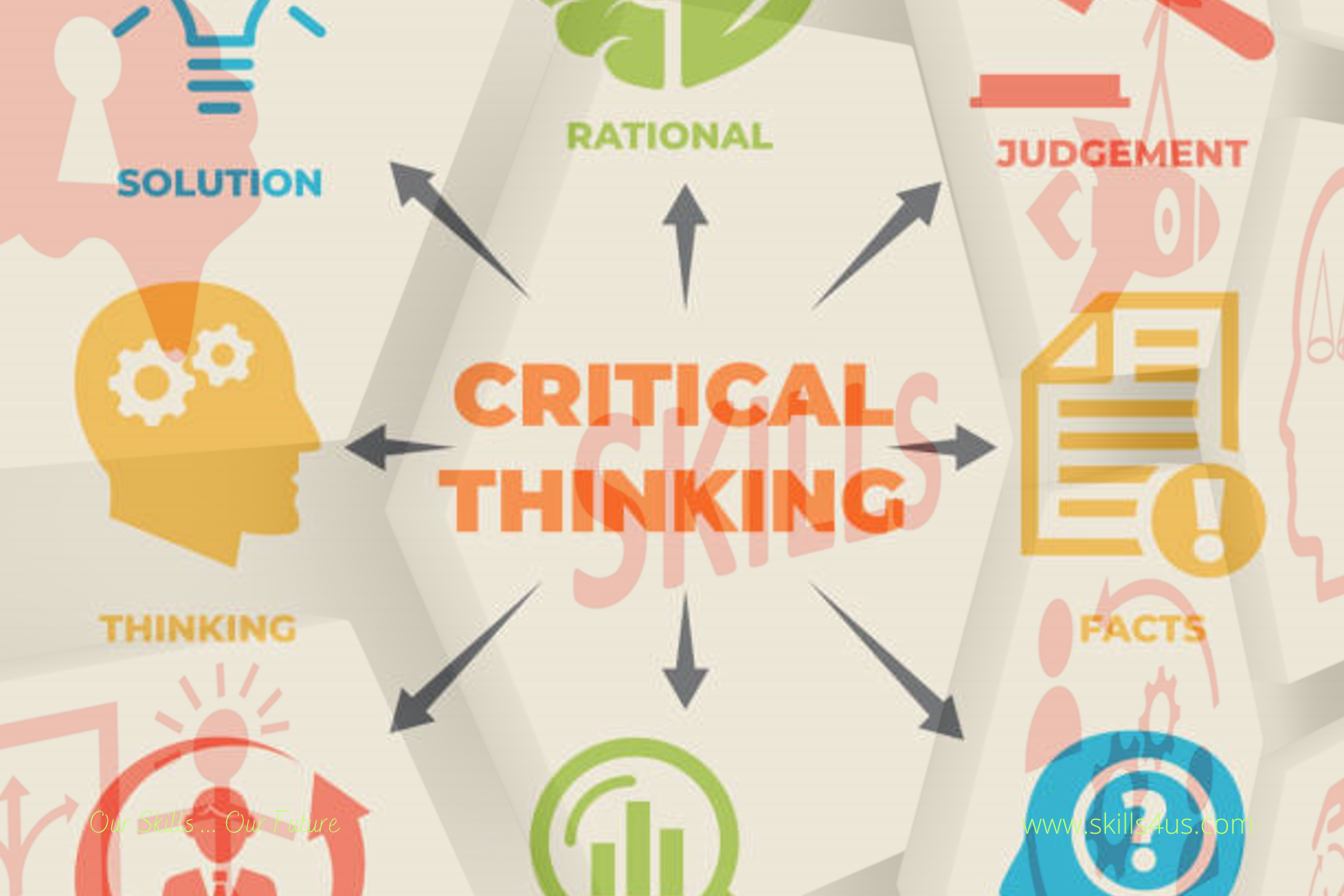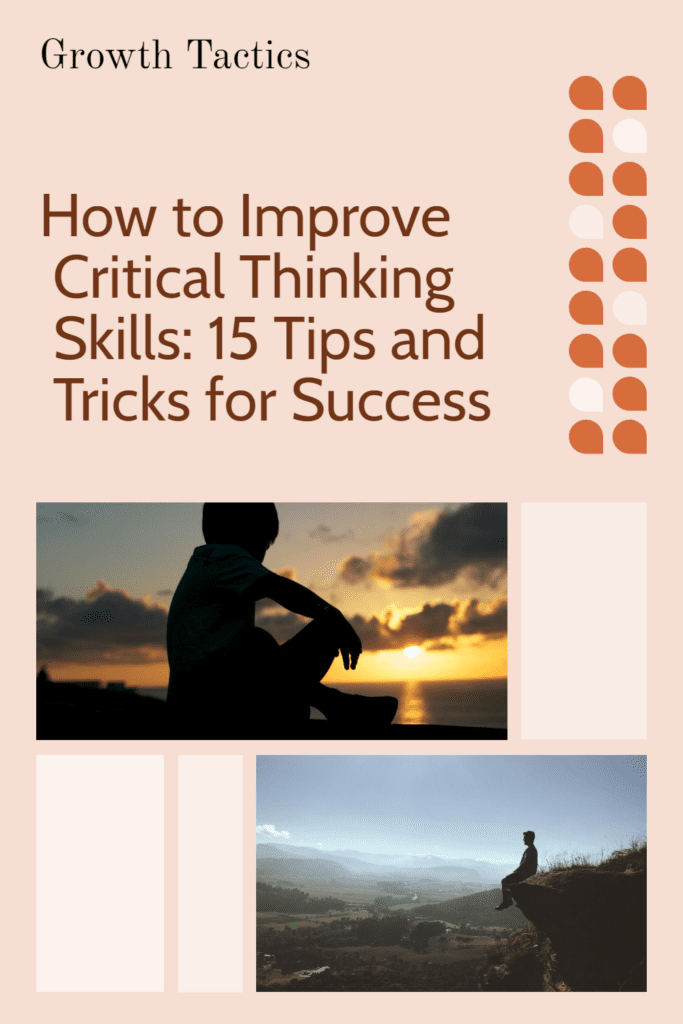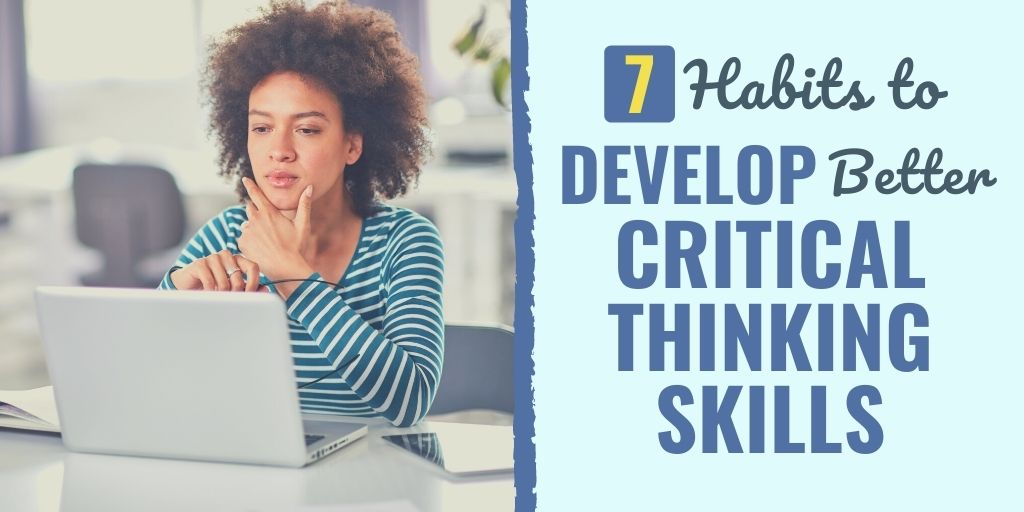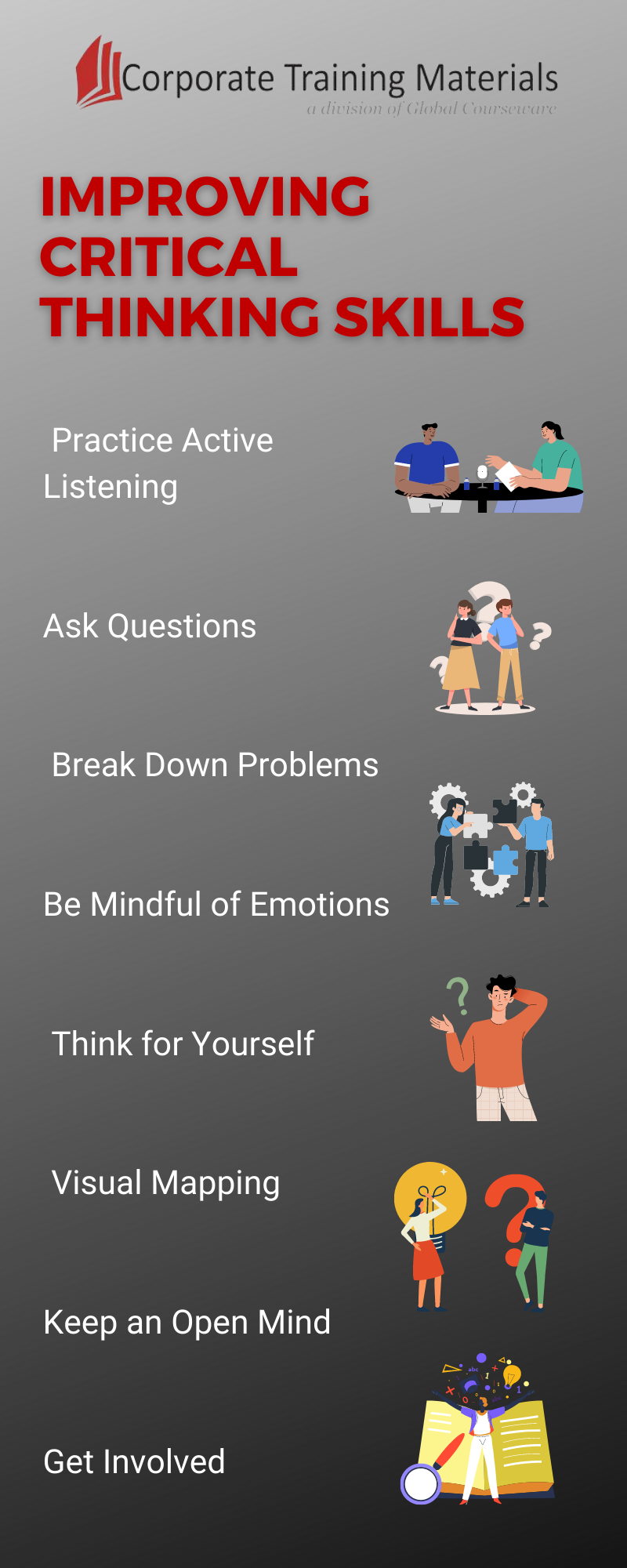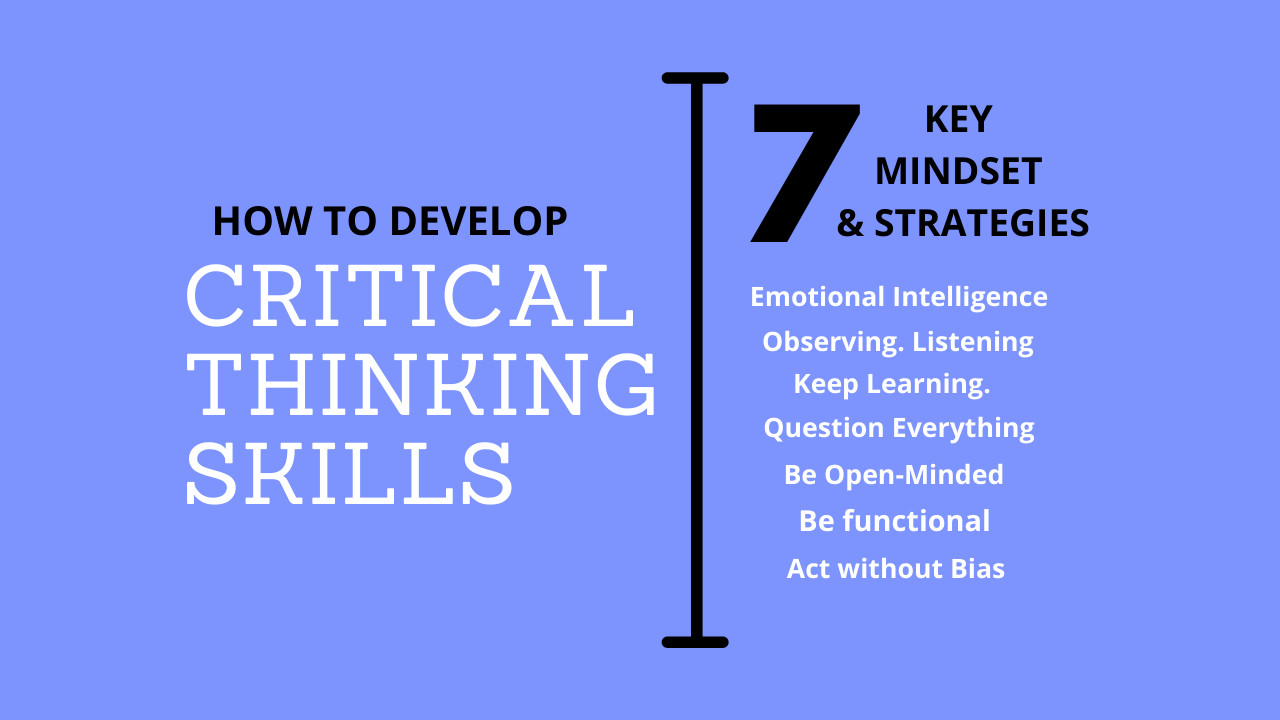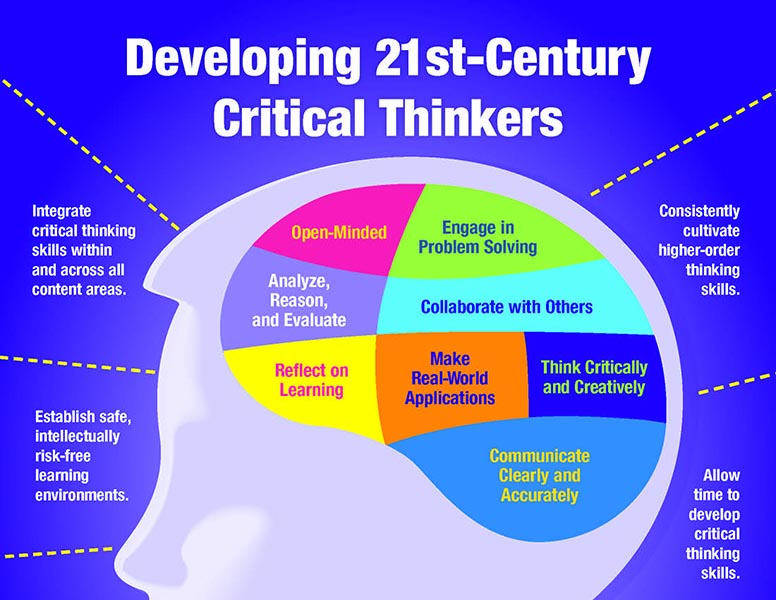How Do You Improve Critical Thinking Skills
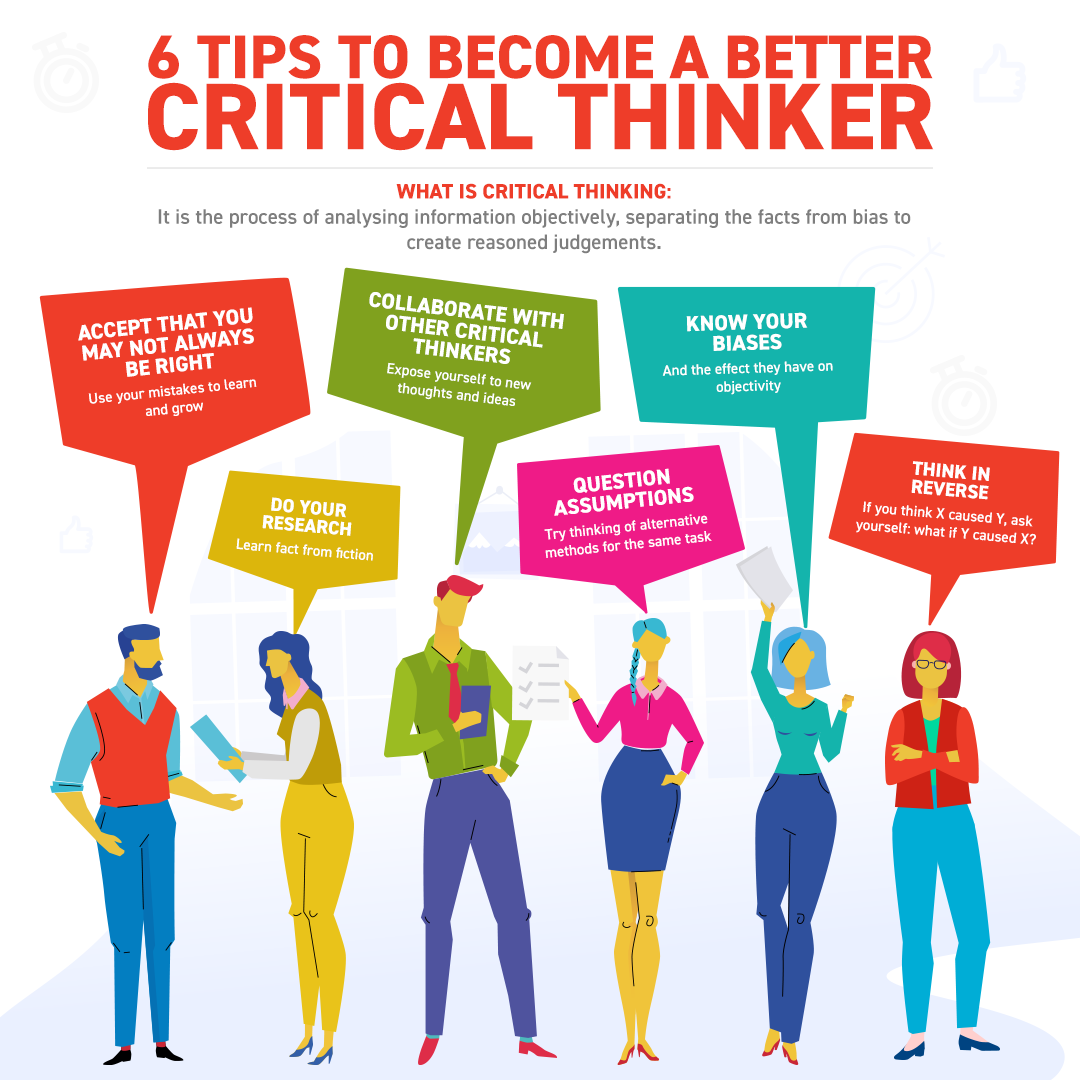
In an increasingly complex world saturated with information, the ability to think critically is no longer just an asset – it's a necessity. From navigating fake news to making informed decisions about personal health and finances, strong critical thinking skills are crucial for success in all aspects of life.
This article explores practical strategies and techniques for enhancing these essential cognitive abilities. We will examine actionable steps individuals can take to sharpen their analytical minds, improve their reasoning abilities, and become more discerning consumers of information.
Understanding Critical Thinking
Critical thinking, as defined by the Foundation for Critical Thinking, is the "intellectually disciplined process of actively and skillfully conceptualizing, applying, analyzing, synthesizing, and/or evaluating information gathered from, or generated by, observation, experience, reflection, reasoning, or communication, as a guide to belief and action."
It's more than just memorizing facts; it involves questioning assumptions, identifying biases, and forming reasoned judgments based on evidence.
Practical Strategies for Improvement
One of the most effective ways to boost critical thinking is to actively question everything. Don't accept information at face value.
Ask yourself: What is the source of this information? What evidence supports this claim? What are the potential biases of the author or speaker?
Developing a habit of questioning helps you to dig deeper and uncover hidden assumptions.
Another crucial step is to engage in active reading. This means more than just skimming the words on a page.
It involves actively processing the information, summarizing key points, and identifying arguments and counterarguments.
Annotating texts, taking notes, and discussing the material with others can all enhance comprehension and critical analysis.
Seek Diverse Perspectives
Limiting yourself to a single viewpoint can hinder your ability to think critically. Actively seek out diverse perspectives on any given issue.
Read articles and books from different sources, engage in conversations with people who hold opposing views, and consider alternative explanations. This exposes you to different viewpoints and challenges your own assumptions, fostering a more balanced and nuanced understanding.
Practice Problem-Solving
Critical thinking skills are best honed through practice. Regularly engage in problem-solving activities, such as puzzles, games, and real-world challenges.
Approaching problems systematically, breaking them down into smaller parts, and exploring different solutions helps to develop your analytical and reasoning abilities. Even tackling simple everyday problems can provide valuable practice.
Embrace Metacognition
Metacognition, or "thinking about thinking," is a crucial component of critical thinking. Take time to reflect on your own thought processes.
Are you making assumptions? Are you being influenced by biases? Are you considering all the relevant evidence?
By becoming more aware of your own cognitive habits, you can identify areas for improvement and develop more effective strategies for thinking critically.
The Importance of Logic and Reasoning
A strong foundation in logic and reasoning is essential for effective critical thinking. Understanding logical fallacies, such as ad hominem attacks and straw man arguments, can help you identify flaws in reasoning and avoid being swayed by misleading arguments.
There are many resources available, including online courses and textbooks, that can help you develop your understanding of logic and reasoning principles.
The Role of Education
Education plays a vital role in fostering critical thinking skills. Many educational institutions are now incorporating critical thinking exercises and activities into their curricula.
However, learning doesn't end in the classroom. Individuals can also improve their critical thinking skills through self-directed learning, online courses, and workshops.
The Long-Term Benefits
The benefits of developing critical thinking skills extend far beyond the classroom or workplace. Strong critical thinkers are better equipped to make informed decisions in all areas of their lives, from personal relationships to civic engagement.
They are less likely to be misled by false information and more likely to contribute to a more informed and reasoned society.
Investing in critical thinking skills is an investment in your future and the future of society.

